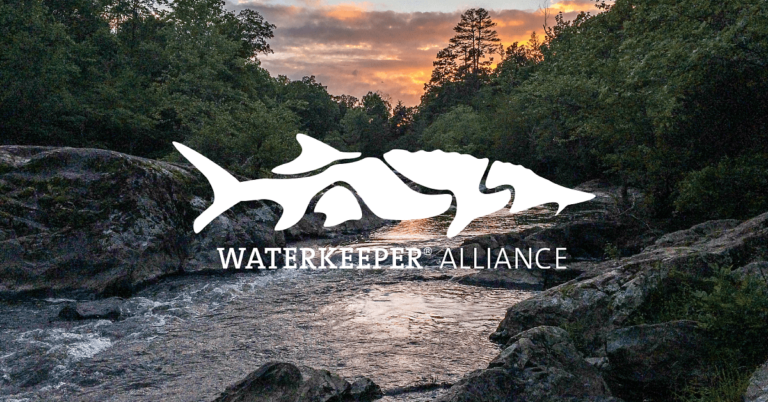Waterkeeper Alliance Opposes “Monsanto Shield” Provision in Chemical Safety Reform Legislation
By: Waterkeeper Alliance

NEW YORK, NY — April 19, 2016 — Waterkeeper Alliance and 55 Waterkeeper member organizations and affiliates across the country are urging President Obama to oppose an attempt by Congress to use toxic chemical safety reform legislation to protect Monsanto, one of the world’s largest and most profitable polluters, from liability for billions of dollars of damages caused by toxic polychlorinated biphenyls (PCBs).
The Toxic Substances Control Act (TSCA), passed in 1976, singled out Monsanto’s PCBs for an explicit ban because of the human health dangers and massive damage PCBs had already caused across the country. Monsanto was, in essence, the sole U.S. manufacturer of PCBs, producing and distributing roughly 1.4 billion pounds between 1930 until 1977. The company continued production for roughly a decade after learning that these persistent, toxic chemicals were contaminating natural resources and harming people around the world.
“Monsanto’s PCBs have contaminated more than 80,000 miles of streams and rivers and 2.9 million acres of lakes and reservoirs in the United States alone,” said Marc Yaggi, Executive Director of Waterkeeper Alliance. “Rather than be shielded by Congress, they must be held accountable for the damage inflicted on people and natural resources across the country.”
As cities, school districts, governments, and individuals are being forced to go to court to hold Monsanto responsible for the widespread damage caused by its PCBs, Republican House Energy and Commerce Committee staff members covertly inserted a potential liability shield provision for Monsanto into Section 7(c) of H.R. 2576 – a bipartisan Toxic Substances Control Act (TSCA) reform bill originally intended to protect the public from the risks of toxic chemicals. Monsanto and its corporate successors are already using Section 7(c) of H.R. 2576 to argue in a federal court case that TSCA has always shielded it from liability.
“The liability shield is just an underhanded attempt to immunize Monsanto from a number of recent legal actions brought by California cities to hold the company accountable for PCB pollution in our waterways,” said Sejal Choksi-Chugh, Executive Director & San Francisco Baykeeper. “Even though PCBs were banned by EPA in the 1970s, San Francisco Bay still suffers from PCB contamination at levels that are harmful for fish and wildlife. Cities such as Oakland, Berkeley, and San Jose have highly industrialized areas that still contribute stormwater polluted with PCBs to San Francisco Bay, and those city leaders have decided to hold Monsanto accountable for the costly clean up. These cities should not have their day in court taken away from them by this sneaky last-minute shield.”
“We on the Upper St. Lawrence River and its tributaries the Grasse and Raquette Rivers know all too well the toxic legacy left by PCBs – fish that are not edible and will not be for decades, sediment that is too toxic to move, multi-generational disruption of the cultural heritage of First People, and billions of dollars of remediation costs, “ said Lee Willbanks, Upper St. Lawrence Riverkeeper. “It is unconscionable to think that the Congress would give any polluter a pass on their responsibility to clean up their mess.”
The PCB ban did not halt the spread of PCB pollution across the country or prevent the damage caused by PCB exposure, which includes cancer, neurological damage, immunological damage, and other severe human health problems. Today, this toxic pollution persists all over the world in our bodies, in our homes and schools, in the water, in the air, in our food supplies, in our drinking water, and in fish, wildlife and plants.
“The pollution from the Aroclor PCBs marketed by Monsanto continues to haunt our community. These chemicals persist in the food chain and will continue to pose a risk for years,” said Jerry White, Spokane Riverkeeper. “On our river, no one dares eat local fish without looking over their shoulders at the health advisories that warn the public of PCBs toxins in their fish.”
“As a lifelong recreational fisherman, I always dreamt of bringing fresh, healthy ocean-caught fish home to my family,” said Tom Kutcher, Narragansett Baykeeper. “One of the great disappointments of my life is that I can’t feed striped bass and bluefish to my kids due to PCB contamination.”
Jill Jedlicka, Executive Director & Riverkeeper, Buffalo Niagra Riverkeeper, said: “The Buffalo River is a Great Lakes Area of Concern and major tributary to Lake Erie. Once declared biologically dead, the Buffalo River is impaired primarily due its industrial legacy and the presence of PCB contamination in its sediment and fish tissue. It has taken our community nearly 10 years, and $100 million to clean up this toxic contamination, but because of the persistence of PCBs in the ecosystem, we will continue to have fish consumption restrictions for decades to come.”
If this provision is included in the final TSCA reform bill, Waterkeeper Alliance and Waterkeeper organizations across the country are calling on President Obama to exercise his veto power to ensure that our nation’s health and environmental interests are not sacrificed to protect Monsanto’s ill‐gotten profits.